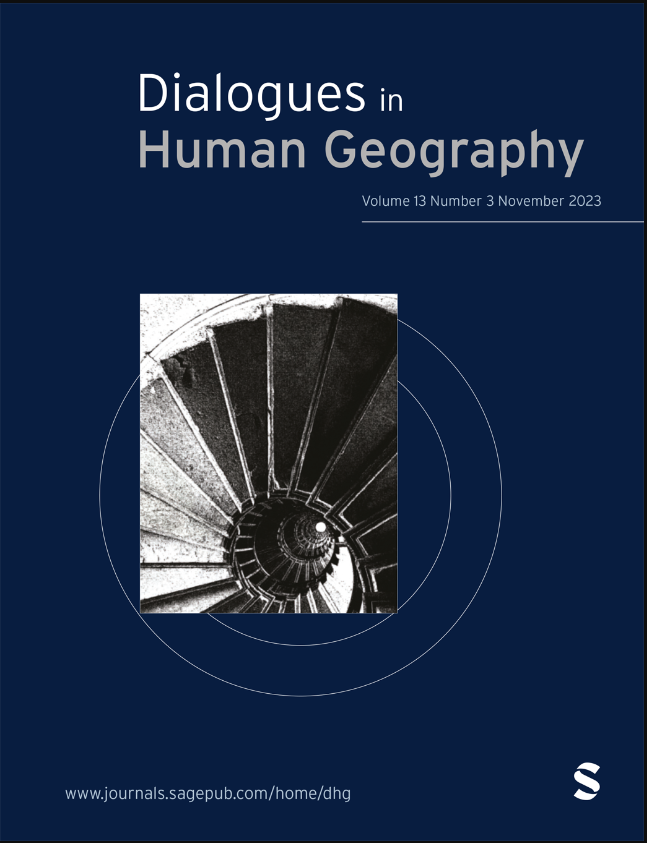从参与式视频的视角看酒精、饮酒和醉酒的地貌特征
IF 9.6
1区 社会学
Q1 GEOGRAPHY
引用次数: 0
摘要
在这一对话中,我们通过参与式视频的视角,并借鉴青年地理学的研究成果,来探讨酒精、饮酒和醉酒的地理学问题。我们探讨了参与式视觉研究方法,并询问这些方法如何能够让研究人员对熟悉的地域提出(a)新问题,正如杰恩和瓦伦丁(2023 年)所提出的那样。在此过程中,我们重新审视了十多年前关于青年与归属的研究中由参与者主导的人种学视频数据。本文章由计算机程序翻译,如有差异,请以英文原文为准。
Geographies of alcohol, drinking, and drunkenness through the lens of participatory video
In this dialogue, we view geographies of alcohol, drinking, and drunkenness through the lens of participatory video and drawing on research within geographies of youth. We address participatory, visual research methods and ask how such methods might enable researchers to ask (a)new questions about familiar terrain, as proposed by Jayne and Valentine (2023) . In so doing, we re-visit ethnographic participant-led video data from our research on youth and belonging more than a decade ago.
求助全文
通过发布文献求助,成功后即可免费获取论文全文。
去求助
来源期刊

Dialogues in Human Geography
GEOGRAPHY-
CiteScore
8.00
自引率
4.00%
发文量
86
期刊介绍:
Dialogues in Human Geography aims to foster open and critical debate on the philosophical, methodological, and pedagogical underpinnings of geographic thought and practice. The journal publishes articles, accompanied by responses, that critique current thinking and practice while charting future directions for geographic thought, empirical research, and pedagogy. Dialogues is theoretically oriented, forward-looking, and seeks to publish original and innovative work that expands the boundaries of geographical theory, practice, and pedagogy through a unique format of open peer commentary. This format encourages engaged dialogue. The journal's scope encompasses the broader agenda of human geography within the context of social sciences, humanities, and environmental sciences, as well as specific ideas, debates, and practices within disciplinary subfields. It is relevant and useful to those interested in all aspects of the discipline.
 求助内容:
求助内容: 应助结果提醒方式:
应助结果提醒方式:


